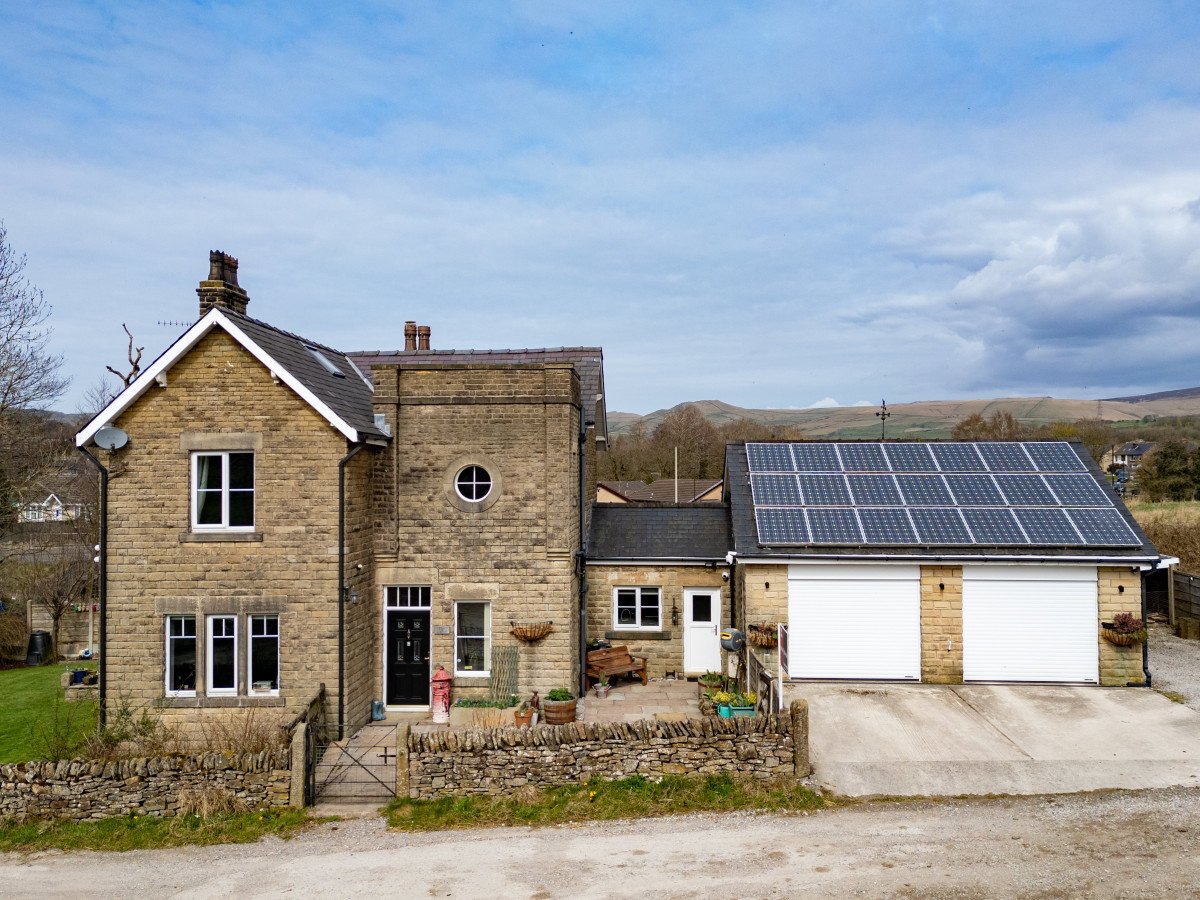Inheritance Tax and Your Property: A 2025 Guide for DIY Sellers

Navigating inheritance tax can be daunting, especially when you're selling property without an agent. With major changes taking effect in 2025, it's vital to understand how the new rules affect your property sale. In this guide, we'll walk you through the essentials - from thresholds to tax-saving tips - so you can make smart, informed decisions.
What Is Inheritance Tax and When Does It Apply?
Inheritance Tax (IHT) is a tax on the estate (property, money and possessions) of someone who has died. It only applies if the estate's value exceeds a certain threshold, and, there are exemptions, depending on who inherits.
As of April 2025, the UK moves from a domicile-based to a residence-based IHT system. This means more people with UK property could now be liable - even if they live abroad.
Thresholds and Exemptions
- £325,000 Nil-Rate Band: No IHT is due if the estate is worth less than this.
- £175,000 Residence Nil-Rate Band: Applies if you pass your main home to direct descendants (children or grandchildren).
- Married couples and civil partners can combine allowances – potentially shielding up to £1 million.
Does Property Always Count Toward IHT?
Yes, the value of any property you own forms part of your estate. If you co-own a home, your share is counted.
What If You Gift a Property Before Death?
If you gift a property and live for 7 more years, it's outside your estate for IHT purposes. If you die within 7 years, taper relief may reduce the bill. But if you continue living in the property without paying market rent, it may still be counted.
Why Having a Will Matters
- A Will ensures your property and other assets are passed on as you wish – quickly and with fewer disputes.
- Without a Will, your estate is distributed under intestacy rules, which may not reflect your intentions. For example, an unmarried partner won't automatically inherit.
- Selling inherited property becomes much more complex without a Will, as probate can be delayed while rightful heirs are identified.
What Is Probate and Why Is It Important?
- Probate is the legal process of administering someone's estate after they die. This includes valuing assets, paying debts and distributing inheritance.
- You usually can't sell a property until probate has been granted.
- For DIY sellers, a professional valuation is key, and keeping clear records will speed up the process.
- Probate can be handled personally, but if the estate includes multiple assets or IHT is due, many people choose to appoint a probate service to manage it.
Using Trusts for Property Protection
Some sellers might come across Protective Property Trusts or Living Trusts as part of estate planning:
- A Protective Property Trust allows a couple to ringfence half the value of a shared home to protect it for children or beneficiaries, even if the surviving partner goes into care or remarries.
- A Living Trust lets you transfer property while still alive. This can help your heirs avoid probate delays and protect assets, but it should only be set up with professional advice.
Practical Advice for Sellers
- Get a Professional Valuation: Essential for probate and useful for setting a fair market price.
- Keep Records: Deeds, bank statements, utility bills; the smoother your paperwork, the quicker your sale.
- Consider Timing: A rushed sale could trigger unnecessary tax or reduce offers. Time it carefully if the estate is still in probate.
- Seek Advice: Estate agents, tax advisers, and probate professionals can all offer insight, especially when navigating rule changes or cross-border issues.
A Quick Scenario to Bring It Together
Let's say Jane inherits her late father's house valued at £400,000. There is no mortgage, but no Will either. Probate takes nearly 8 months to come through, delaying her ability to list the home. If a Will had been in place, the executor could have begun much sooner. Because Jane didn't realise a formal valuation was required for IHT purposes, her tax return is delayed. With better planning, this could've been avoided.
Estate planning might feel overwhelming, but getting it right ensures your loved ones - and your legacy - are protected. Whether you're selling, inheriting, or just planning ahead, staying informed about how inheritance tax interacts with property is key.
With an enviable position overlooking scenic open fields, this distinctive stone-built detached residence combines traditional charm with modern comfort. Available for sale here May 2025

Selling This Spring? Here’s How to Get Ahead of the Competition
26.02.2026Spring is one of the busiest times to sell, but more listings mean more competition. Here’s how to price, photograph and position your home to stand out and secure early offers.
.png)
Sell or Let Your Property Yourself – Why More UK Homeowners Are Choosing to Go Online
03.02.2026Selling or letting a property no longer has to mean handing over thousands of pounds to a traditional estate agent.
.png)
Before You List: Watch Emoov’s Top Tips for Home Sellers
20.01.2026Thinking about selling your home? Before you list, it’s worth taking a few minutes to watch this short video from emoov, where we break down the key steps every seller should take before going live online.
.png)
A Step-by-Step Video Guide: Uploading a Property
23.12.2025This guide explains how to upload your property listing on Emoov, with a step-by-step video and expert tips on photography, presentation, floorplans, descriptions and video tours to help you get your home live quickly.

Selling Your Home? Here’s What You’ll Need to Have Ready
28.11.2025Thinking of selling your home yourself? Before you dive into viewings and negotiations, make sure your paperwork is in order.

Has Your Home Increased in Value? What 2025 Property Prices Mean for Sellers
30.10.2025Homeowners across the UK are asking the same question: has my property increased in value over the last few years? With new figures showing that over a million homes have jumped by more than 50% in value since 2020, it might be time to take a closer look. Whether you're considering selling, remortgaging, or just curious, here's how to understand your home's worth in today's market.









